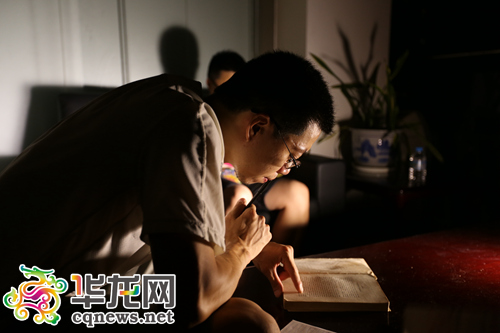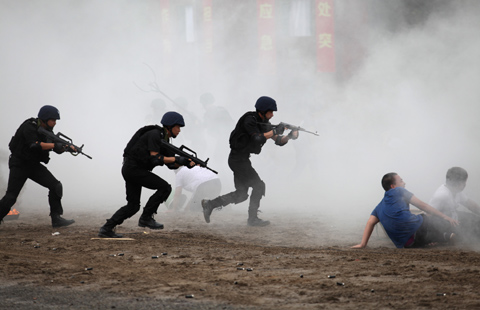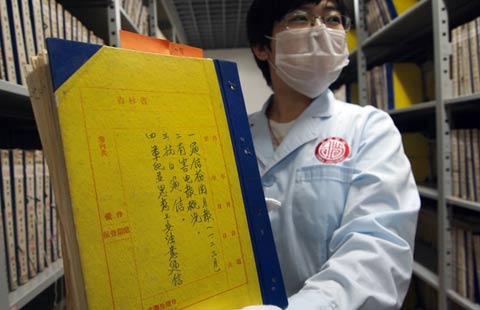English journalist's diary of Nanjing Massacre revealed
(CQNEWS.NET) Updated: 2014-07-11 15:52
|
 |
|
A reporter from CQNEWS is reading Japanese Terror in China. [Photo/cqnews.net] |
Japanese soldiers killed Chinese by bayonet and raped women in residential houses
On 21st December, 1937, Timperley saw a Chinese man walked the Nanjing University Hospital with five bayonet cuts. This man said he was caught into a captive team the day before.
This man told Timperley that during that night, a place in west Nanjing, about 130 Japanese soldiers used bayonets killed nearly 500 Chinese. The soldiers had left when he woke up. He crawled away during the night.
At the end of 1937, the Republic of China moved its capital from Nanjing to Chongqing; meanwhile, Nanjing was completely looted.
"It is now Christmas Eve. In these two short weeks we here in Nanjing have been through a siege; the Chinese army has left, defeated, and the Japanese has come in. Today Nanjing is a city laid waste, ravaged, completely looted, much of it burned. It has been a hell on earth." Timeperly said in his book.
Timperley could run into some soldiers getting out of houses after raping Chinese women very often. They looked mad, sometimes drunk. Timperley was not sure of himself when he found a bayonet at his chest or a revolver at his head, only because he was in someone's way.
Embassies and ambassadors' houses were robbed
Japanese crimes were not just on Chinese. Timperley said in his diary that almost each house in the city was robbed several times, even the American, British and German embassies and ambassadors’ houses. Japan targeted all kinds of clothes, vehicles, food and all other wealthy things.
Timperley said at that time, the Japanese broke into most of the stores and emptied them, only except a rice shop which was owned by the International Committee and a military store.
"They were carrying everything in a certain order, under the supervising of military commanders, and then burned the house down. Japanese soldiers raged many fires in the residential houses, on purpose.
- Nation inaugurates memorial website for Nanjing Massacre
- Online memorial dedicated to memory of Nanjing Massacre victims
- Danish Queen visits Nanjing Massacre memorial
- Former US ambassador pays tribute to victims of Nanjing Massacre
- The confessions of Japanese war criminal Juntarō Tominaga
- Xi commemorates start of War of Resistance against Japanese Aggression
- Plan to build border city in Xinjiang Ok'd
- Fun diving in Guangdong
- School bus accident kills 11 in C China
- Web retailers urged to heed consumers' refund rights
- Military boosts corruption fight
- Changes sought in smoking law
- Second-child policy having limited effect
- Graduation photos capture younger, older self
- Courts in China to look out for lawyers
- College addresses need for experts in anti-terrorism







